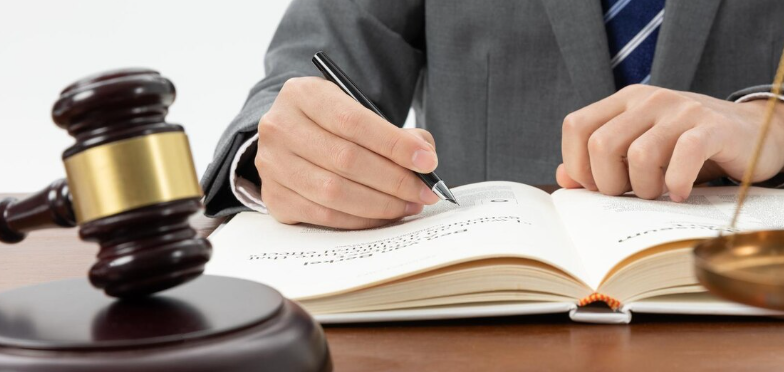
The Multifaceted Role of Criminal Lawyers in Pursuit of Justice
In the intricate landscape of our legal system, criminal lawyers serve as vital advocates, navigating the complexities of the law to transform the concept of justice into a tangible reality. Their role extends far beyond the dramatized courtroom scenes often portrayed in media; it is rooted in the fundamental principles of our society, where the presumption of innocence is paramount.
The Role of Criminal Lawyers
Criminal lawyers are not just defenders; they are guardians of fundamental rights, committed to upholding the principles embedded in our legal framework. Their mission is to protect the accused from excessive state power, ensuring that every individual, regardless of their background, receives a fair and impartial trial. This noble pursuit demands a nuanced understanding of the law, an acute awareness of human psychology, and an unwavering commitment to uncovering the truth.
Building a Robust Defense
A primary responsibility of criminal lawyers is to provide a strong defense for their clients. This involves meticulously examining every piece of evidence, challenging witness testimonies, and leveraging legal precedents to construct a compelling case. Criminal lawyers act as strategists, crafting defenses that not only highlight weaknesses in the prosecution’s arguments but also create a narrative that resonates with jurors. They are storytellers at heart, weaving tales of innocence amidst the chaos of criminal allegations.
Lifelong Learning and Adaptability
The legal landscape is ever-changing, with laws evolving to reflect society’s shifting values. As such, criminal lawyers must be lifelong learners, staying informed about statutes, precedents, and legal doctrines. This commitment to ongoing education distinguishes exceptional criminal lawyers from their peers and enables them to adapt their strategies effectively.
Navigating Ethical Dilemmas
The realm of criminal defense is fraught with moral challenges. Lawyers often find themselves defending individuals accused of serious crimes, which tests their ethical boundaries. The ability to separate personal beliefs from professional obligations is crucial for success in this field. Criminal lawyers become the voice for the accused, advocating for due process and the right to a fair trial, even when facing societal backlash.
Negotiating Plea Deals
Beyond courtroom battles, criminal lawyers play a significant role in negotiating plea deals. This process involves engaging with prosecutors to secure favorable outcomes for their clients. Effective negotiation requires finesse, empathy, and a comprehensive understanding of the legal landscape. The objective is not merely to win cases but to ensure that justice prevails, even if it necessitates navigating complex compromises.
Protecting Individual Rights
Criminal lawyers act as a bulwark against potential abuses by law enforcement. They scrutinize police procedures, challenge unconstitutional searches and seizures, and protect the rights of the accused from infringement. In doing so, they help maintain a delicate balance between enforcing law and order while safeguarding individual liberties.
The Importance of Choosing the Right Criminal Lawyer
Selecting the right criminal lawyer is crucial for anyone facing legal challenges. The outcome of a case can hinge on the attorney’s expertise, experience, and approach to defense. Here are several factors to consider when choosing a criminal lawyer:
1. Experience in Criminal Law
When seeking legal representation, prioritize attorneys with substantial experience in criminal law. Look for lawyers who specialize in the specific type of charges you are facing, whether they involve drug offenses, white-collar crimes, violent crimes, or DUI cases. An experienced lawyer will be familiar with the nuances of local laws and court procedures, which can greatly influence the outcome of your case.
2. Track Record of Success
Research potential lawyers’ track records to assess their success rate in similar cases. A lawyer with a history of favorable outcomes demonstrates their ability to effectively advocate for their clients. Look for testimonials, case results, and any recognitions or awards that highlight their competence in criminal defense.
3. Communication Skills
Effective communication is essential in any attorney-client relationship. Your lawyer should be able to explain complex legal concepts in understandable terms and keep you informed about the progress of your case. During your initial consultation, pay attention to how well they listen to your concerns and answer your questions. A good lawyer will make you feel comfortable discussing your situation openly.
4. Approach to Defense
Every criminal case is unique, and different attorneys may employ varying strategies. During consultations, ask potential lawyers about their approach to defense. Do they prefer aggressive litigation or negotiation? How do they plan to handle your specific case? Understanding their strategy will help you gauge whether it aligns with your expectations.
5. Availability and Support
Your attorney should be accessible throughout the legal process. Inquire about their availability for meetings and updates on your case. A lawyer who is frequently unavailable or delegates most tasks to junior staff may not provide the level of support you need during this challenging time.
6. Fees and Payment Structure
Discuss fees upfront to avoid surprises later on. Some criminal lawyers charge flat fees, while others bill hourly or have retainer agreements. Make sure you understand what services are included in the fee and any additional costs that may arise during the process. A transparent fee structure will help you budget effectively for your legal expenses.
Societal Impact
The influence of criminal lawyers extends well beyond individual cases; their work shapes legal precedents and informs public perceptions of justice. As defenders of the rule of law, they serve as checks against arbitrary state power, reinforcing the belief that justice should be blind and that every accused individual deserves competent representation.
Conclusion
In summary, criminal lawyers are unsung heroes within our legal system. Their responsibilities encompass a wide range of tasks that require legal expertise, ethical integrity, and an unwavering commitment to justice. In a world where the scales of justice can easily tip, it is through the steadfast dedication of criminal lawyers that balance is maintained—upholding the principles that form the foundation of our democratic society.If you or someone you know is facing criminal charges or needs legal representation, consider reaching out to an experienced criminal lawyer who can provide guidance and support throughout this challenging process. Their expertise can make a significant difference in achieving a fair outcome in your case.
